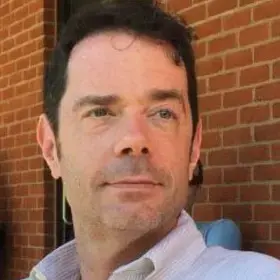By Steven Cohen, Ph.D., Director of the M.S. in Sustainability Management program, School of Professional Studies
Elon Musk is new to the field of public administration. I’ve been at it for a while. In the fall of 1981, I team-taught a new course called Public Management with Fred Thompson, a wonderful and generous colleague at Columbia University who taught me management while teaching me how to teach the topic. A few years later, I was directing Columbia’s Graduate Program in Public Policy and Administration and continuously evolving the Public Management course. I was trying to understand why government seemed ineffective and why President Reagan had defined government as the source of America’s problems. I was searching for a textbook for the course, one that would focus on how to make government more effective. Lynn Luckow, at that time, an acquisitions editor from the publishing company Jossey-Bass (later its President and CEO), stopped by to ask me about my textbook needs, and I told him I was looking for a practical book written for public managers about management effectiveness. A few weeks later, he stopped by again to suggest that I write that book, and the result in 1988 was the First Edition of The Effective Public Manager. Later, I was joined by Bill Eimicke on the second and third editions and then by Tanya Heikkila and Bill on editions four and five. I taught Public Management from 1981 until 2010 when I began teaching a new course called Sustainability Management. I mention The Effective Public Manager because the first edition’s first page begins with a true story that took place long ago in Central Park. As I wrote back in 1987 (published in 1988):
“For more than six years New York City struggled to rebuild a skating rink in Central Park. More than $12 million had been spent to replace the old rink with a state-of-the-art space-age skating rink. In the spring of 1986, the city government admitted that the construction was flawed and the rink would not open for two more years. Donald Trump, the flamboyant football team owner and real estate developer, offered to complete the rink in four months, operate the rink, and donate any profits to the city’s homeless. The city government, though embarrassed, was unable to refuse Trump’s generous offer. Why would this private developer accomplish in four months what the public sector needed eight years to complete? Are private sector people smarter? Are government employees lazy and corrupt? ...The Central Park skating rink fiasco, while not a unique case is certainly not typical. A failure of this type gets noticed because the public sector is more closely scrutinized by the media than the private sector. A failed private skating rink is just another of the 30,000 private businesses that fail in the United States every year.” (Cohen, 1988 pp1-2)
I go on to discuss that the reason for the delay was a series of rules governing public sector construction designed to prevent fraud that also made construction incredibly complicated. Some of those rules are now gone, although some remain. In the 21st century, many of government’s tasks are managed and performed by private contractors. Although lots of private companies do contract work for government, the work of government remains more complicated than the work of the private sector. As I used to say back then, it’s easier to make a beer that tastes great and is less filling than it is to end homelessness. What I’d say to our newest government efficiency expert, Elon Musk: it’s easier to make an electric car than to end terrorism. Electric cars are known for having few moving parts, terrorism is known to possess many moving parts, mostly secret, and mainly evil. Manufacturing an electric vehicle or building a satellite communication network are productive acts designed to do good and ensure that Elon does quite well. Suicide bombers are simply evil, and government’s job is to stop them before they get a chance to act. In the case of terrorism, effectiveness is more important than efficiency. My home city of New York was the site of the worst act of terror in American history, and we have about 1,000 NYPD staff devoted to anti-terror work. If it took 2,000 police staff, few New Yorkers would complain about the cost.
Elon and his Silicone Valley bros have no idea what they are stepping into. They are focused on reducing regulation, but regulation is the tip of the government iceberg. It’s the part of government’s work that the private sector notices, but it is a tiny element of government’s work. According to Musk’s co-authored Wall Street Journal Op-Ed: “A drastic reduction in federal regulations provides sound industrial logic for mass head-count reductions across the federal bureaucracy.” Sorry, fellas, you need to look at some data. Very few government workers are engaged in regulation. Cutting regulation will cut short-term private-sector spending but will have little impact on government expenditures. The federal government directly manages the military, national parks, air travel and airport security, customs and immigration, and emergency response. A great deal of the work of these agencies is performed by government contractors. Musk knows this. NASA used to send up rockets, now Elon does (supported by government contracts) and Bezos and Boeing try. The number of federal government employees has not grown since 1980, and all of government’s growth has been in contracting to the private sector. Paul Light’s path-breaking book The True Size of Government tells the complete story. Most of the federal budget pays for debt service, defense, social security, and other transfer payments to individuals, as well as grants to state governments. The remaining discretionary budget is small, and the staff engaged in that work is also small.
You can cut Twitter’s staff by 50% and the impact is nothing compared to the massive impact of cutting 50% of the staff of the Social Security Administration. Old people would become destitute, and some would die. It turns out that the administration of Social Security, Medicare, and Medicaid are far less expensive than the administration of private health insurance and retirement funds, but that is because the work they do is not really comparable. That is the problem with management across sectors. The work is different, the cost structure is different, and, of course, the incentives are different.
This effort to apply private management techniques to public management is idiotic and ill-advised. It’s a little like Michael Jordan the baseball player. He was OK at baseball, but in the end, decided to go back to being great at basketball. You can be a great basketball player and an average baseball player. You can be a visionary private manager and end up as a mediocre public administrator. Elon may like the attention he’ll get from his efficiency crusade, and I am confident that there will be many announcements, social media declarations, and similar visible displays, but I will be very surprised if much actually happens. He is a visionary and talented entrepreneur. As the richest person in the world, he clearly is smart and talented. But the work of public administration is very different than the work Mr. Musk has succeeded in. Some of the lessons are transferable across sectors, but many, if not most, are not.
My assumption is that the real work of this operation will be to cut regulations rather than making government more efficient. Cutting staff and budgets is messy and will result in political and legal opposition. Cutting and gutting rules is comparatively simple and while courts and state attorneys general will get involved, it is attention-getting and performative. The cost savings to the private sector can be computed as can the benefit loss to the public. Musk and his colleagues will discover the limits of executive power in government. It is not that the President is powerless, far from it. The American president is the most powerful chief executive in the world. But there are many countervailing centers of power in the United States. We have a federal system of government and so states retain a degree of sovereignty and power. We have three branches of government and each of those branches will work to protect their own power. And we have a powerful and influential private sector that also checks the power of government.
It is a shame that all this talent will be wasted on an exercise in symbolic change and futility. There are many steps that could be taken to make our government more effective. I thought that back in 1987, and I retain that belief today. But enhancing government effectiveness requires detailed, strategic and often difficult work. And it begins with an effort to understand the data detailing the work the federal government does. Much of it is routine, vital, and nonpartisan. To use an example from local government, it was New York City’s Mayor Fiorello LaGuardia who once said: "There is no Democratic or Republican way to clean the streets." We could develop methods and technologies that would improve street cleaning. But not if we cut the budget for cleaning our streets.
Views and opinions expressed here are those of the authors, and do not necessarily reflect the official position of Columbia School of Professional Studies or Columbia University.
About the Program
The Columbia University M.S. in Sustainability Management program offered by the School of Professional Studies in partnership with the Climate School provides students cutting-edge policy and management tools they can use to help public and private organizations and governments address environmental impacts and risks, pollution control, and remediation to achieve sustainability. The program is customized for working professionals and is offered as both a full- and part-time course of study.



